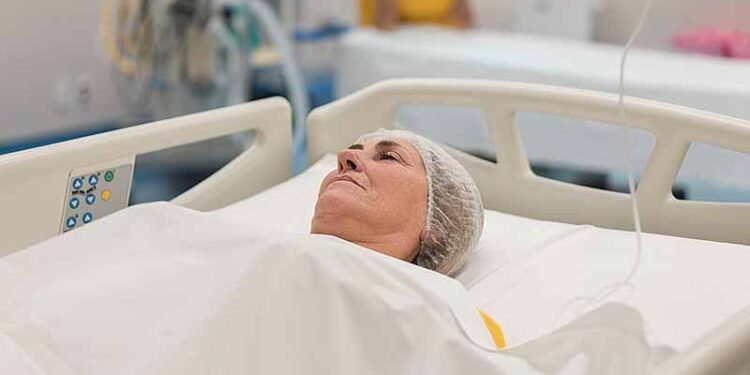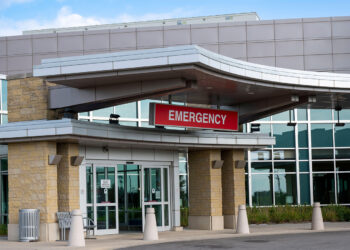Postoperative delirium following noncardiac surgery was linked to a 3.5-fold higher risk for death or major complications, but low-cost interventions focusing on avoiding patient disturbances can mitigate those negative outcomes, a new landmark study showed.
An estimated one in 30 patients in the study experienced postoperative delirium, with high levels of variation in incidence rates among hospitals.
Researchers said the findings are a “call to action” to health providers to proactively manage the risks of postoperative delirium.
“This study is not just about identifying a problem, but it’s also about giving people a sense of the scope of the problem. When you do that, it kind of energizes people to say okay, let’s go out and see if we can do something about this,” principal investigator Laurent Glance, MD, professor and vice-chair for research in the Department of Anesthesiology at the University of Rochester School of Medicine (URMC), Rochester, New York, told Medscape Medical News.
The study is the largest to date to examine the clinical implications of postoperative delirium on a national scale and was published online on July 8 in JAMA Network Open.
Acute Brain Failure
Postoperative delirium was once thought to be a minor and temporary complication. However, that has changed over the past decade.
The American Geriatrics Society, which describes postoperative delirium as “acute brain failure,” recommends the condition be treated as a medical emergency that requires rapid diagnosis and treatment. The cost of managing the condition runs roughly $26 billion to $42 billion in the US each year, and recent studies have linked postoperative delirium to the development of dementia in older adults.
For this study, investigators used Medicare claims data from 2017 to 2020 of more than 5.5 million adults over the age of 65 years (mean age, 74.7; 57.2% women). Postoperative delirium was identified based on ICD-10 codes.
Postoperative delirium was identified in 3.6% of cases. Patients with delirium were more likely to be male and have comorbidities, including cerebrovascular disease, heart failure, and dementia.
Compared to patients without delirium, those with the condition were significantly more likely to experience death or major complications (adjusted odds ratio [aOR], 3.47), non-home discharges (aOR, 3.96) and 30-day mortality (aOR, 2.77; P < .001 for all).
Findings were similar even after adjusting for hospital characteristics and excluded the patients admitted in 2020 during the height of the COVID-19 pandemic.
‘Opportunity for Improvement’
Investigators also found a nearly threefold variation in the rates of postoperative delirium among the 3169 hospitals included in the study.
“When you see that level of variation, what it tells you is that there is an opportunity for improvement,” Glance said.
In fact, researchers noted that prior work found that postoperative delirium is preventable in up to 40% of cases.
“[Postoperative delirium] is not something that’s guaranteed because you’re older or because you have multiple medical problems,” lead author Heather Lander, MD and assistant professor in the Department of Anesthesiology and Perioperative Medicine at URMC, Rochester, New York, told Medscape Medical News.
“This is something that we as a healthcare system can identify early,” she added.
Variability among institutions could also be due to differences in coding accuracy and delirium screening, instead of reflecting true differences in hospital performance, the investigators wrote.
Delirium Often Underreported
The incidence of postoperative delirium reported in the study is markedly lower than previously reported rates of roughly 20% for noncardiac surgery patients. The researchers noted that incidence of postoperative delirium is known to be underreported in Medicare claims data.
Postoperative delirium can be miscoded as other conditions for financial incentives or go undetected by clinicians, particularly for hypoactive delirium where patients may not show typical symptoms of restlessness or disorientation.
Commenting on the finding for Medscape Medical News, Donna Fick, PhD, distinguished professor at Pennsylvania State University College of Nursing, University Park, Pennsylvania, noted that the miscoding of postoperative delirium might underrepresent affected patients in the study.
“When you use ICD-10 codes, claims or administrative data to examine this problem, you’re dependent on clinicians coding the delirium, and we know that that’s grossly under representative,” said Fick, who was not part of the study.
Given the poor health outcomes identified and extrapolated onto a likely higher number of patients affected, this is a “really important study” to represent delirium impacts on a national scale, Fick added.
The authors also did a good job of controlling for important variables, including economic and social determinants of health as well as frailty and comorbidity, she said.
Reducing Delirium Rates
Investigators also found that patients undergoing surgery in hospitals with a higher rate of postoperative delirium had 1.5-fold higher odds of experiencing it compared to hospitals with lower rates.
However, “the inference from that finding has to be very carefully interpreted,” Esther Oh, MD, PhD, professor and associate director of the Johns Hopkins Memory and Alzheimer’s Treatment Center, Baltimore, told Medscape Medical News.
Some hospitals that are referral-based will take sicker patients compared to smaller hospitals, and those that have a delirium screening policy will find more delirium as a direct result, Oh noted.
Both Oh and Fick supported several low-cost, nonpharmacologic interventions to reduce delirium risk that Glance and colleagues recommended in the study, including avoiding sleep disturbance, sensory support and enhanced screening for at-risk patients.
“It would be our hope eventually that postoperative delirium will be one of the quality metrics that will be used by CMS to evaluate hospital quality,” Glance said.
In doing so, public reporting will enhance transparency, awareness and accountability of this issue and hospitals might up their efforts to reduce the rates of postoperative delirium, he added.
This work was supported by grants from the National Institute on Aging, the National Institute of Nursing Research and the University of Rochester. Lander and Glance reported no conflicts of interest. Oh reported grants from the National Institute of Health, and Fick reported current funding through the National Institute on Aging. Other disclosures are included in the original article.
Source link : https://www.medscape.com/viewarticle/new-data-postoperative-delirium-call-action-providers-2025a1000is9?src=rss
Author :
Publish date : 2025-07-16 11:59:00
Copyright for syndicated content belongs to the linked Source.








